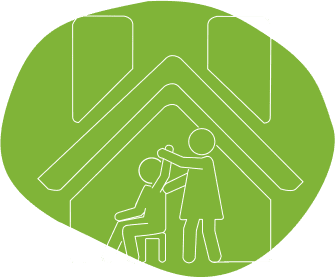Have you ever experienced the power of music to heal and uplift your mood? Music has long been recognised as a universal language that can touch our souls and bring about a range of emotional and physical benefits.
Music has been crucial in various cultural and spiritual practices from ancient civilisations to modern times. However, music’s therapeutic potential has been scientifically explored and applied in healthcare settings in the past few decades.
Today, music therapy is gaining popularity as a complementary treatment approach for various conditions, including mental health disorders, chronic pain, and neurological conditions.
What is music therapy?
Music therapy is a highly effective form of psychotherapy that utilises the healing power of music to address a wide range of physical, emotional, cognitive, and social needs in individuals.
This therapeutic approach involves various musical activities, including improvisation, composition, live performances, and songwriting, tailored to meet each client’s unique needs and goals.
By integrating music into therapy sessions, music therapists can help their clients achieve a range of positive outcomes, such as improved communication and self-expression, enhanced relaxation and stress reduction, greater motor control and coordination, and improved emotional regulation.
Common conditions treated with music therapy
Music therapy can help people of all ages who are facing obstacles (mental, intellectual, physical, emotional, or social) or who want to improve their well-being.
Music therapy is frequently used to treat a variety of illnesses that impact emotion, thinking, behaviour, communication, and movement, such as:
- Autism
- Attention deficit hyperactivity disorder (ADHD)
- Anxiety
- Cancer
- Depression
- Bipolar disorder
- Schizophrenia
- Post-traumatic stress disorder (PTSD)
- Eating disorders
- Personality disorders
- Physical disabilities
- Dementia
- Stroke
- Spinal cord injury
- Neurodegenerative conditions
Music therapy can also be used to assist people in coping with stress, discomfort, and pain in hospitals and healthcare facilities. It is used to help individuals suffering from:
- Cancer and blood and bone marrow disorders
- Advanced diseases with little or no possibility of recovery or cure
- Stroke or a brain injury
- Mental health illnesses
- Surgery or other medical procedures
Types of music therapy
To fulfil your needs, music therapists employ a variety of techniques. In general, the types of experiences you might have can be divided into two categories:
1. Active interventions
- You take an active role in composing music with your therapist for these experiences. You could, for example, sing or play an instrument.
2. Receptive interventions
- Rather than generating music, you listen to music created by your therapist or played from a recording. You may spend time discussing the piece to process your thoughts and feelings.
The benefits of music therapy
The benefits of music therapy are wide-ranging and can provide numerous physical, psychological, and emotional benefits.
Development of positive emotional behaviour
Music therapy can help people understand and name their feelings in a secure environment, leading to better communication. Emotional behaviour also includes emotional awareness and nonverbal expression. Music therapy can help patients learn to articulate their feelings vocally and nonverbally to promote emotional regulation.
Increasing one’s self-esteem
Mental health problems can lower self-esteem and have a detrimental impact on our self-image. Music therapy can boost self-esteem and raise awareness of one’s behaviour. Simply making music and engaging with people boosts one’s self-esteem.
Creating efficient coping strategies
Music therapy can teach patients coping skills such as specific breathing techniques, rhythmic and auditory grounding, musical relaxation, and diversion. These strategies are taught in music therapy so that when a crisis happens, the individual will know how to apply them effectively and cope with environmental pressures or triggers.
Increasing your tolerance for annoyance
Music therapy helps patients to work on frustration tolerance while doing something creative in a controlled environment. A music therapist, for example, may invite the patient to participate in a structured improvisation based on mental health themes (e.g., triggers, overcoming frustration, coping with an assault of emotions during a panic attack). Along with coping with negative emotions such as impatience, music therapy can help clients build relaxation skills that can be employed before, during, or after stressful events.
Improving interpersonal relationships
While mental health is typically considered private, it tremendously impacts our interpersonal relationships. Isolation and lashing out are both prevalent signs of a mental health problem. Music therapy for mental illness can assist people in practising social skills that they can subsequently apply in their daily lives. Music therapy sessions are frequently done in a group setting but can also be done alone.

Final thoughts on music as a therapy
Music is an incredibly powerful therapy tool. With its ability to harness sound and rhythm, music can help to reduce stress, boost moods, improve communication, and promote overall healing. Whether you’re feeling overwhelmed by stress or anxiety or need some positivity in your life, music can be an excellent source of support.
Book an appointment with us today! Our team of experts will lead you down the best treatment path for your recovery.
Author
-

Hub & Spoke is a unique Allied Health service that delivers the latest in therapies and treatments to you both in-home or at work to make health care accessible to everyone.
View all posts

















